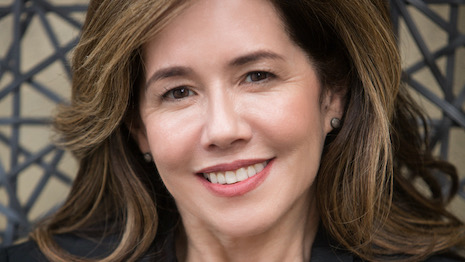By Regina Connell
Accelerating vaccine availability in countries such as the United States and the United Kingdom has given many in the travel and hospitality industries hope for recovery in late 2021/2022.
But as we have seen with Europe and elsewhere, even the availability of vaccines does not guarantee smooth recovery for travel and hospitality.
In fact, most analysts acknowledge that true “recovery” for the breadth of hospitality—if it ever comes—might not come until 2023 or beyond.
So, what will hospitality look like in 2024?
While 2024 might seem a long way out, it should be for anyone managing a luxury hotel or resort brand expansion, thinking about development, or designing the next resort. And in the shorter term, what can luxury do to anticipate trends, particularly after pent-up demand for travel dissipates into a new “new” normal?
To find signposts to the future, we looked to the traveler: the demand side of the equation.
We focused on what the modern luxury consumer would be thinking, doing, feeling and experiencing.
We sifted trends, examining psychology, took cues from history, and took into account economics and the huge dislocations that took place in the travel industry during the first year of the pandemic.
From Gen Z to the younger boomers, we found shifts in luxury consumer psychology driving different wants and expectations from travel and hospitality. These are over and above the more practical ones created by the increasingly “remote” worlds of work and education—both of which will have a significant impact on where, why, how and when people will travel.
To capitalize on those changes we see, hospitality—and in particular, luxury hospitality—will need to deliver different—and greater—value than it has in the past. We saw several two key drivers at work: structural and psychological.
Driver 1: An undifferentiated status quo ante
For over two decades, mid-and upper-middle-market luxury hospitality has competed on great design, wonderful food and beverage, and a lobby “scene."
Even before the COVID-19 coronavirus pandemic, however, this formula was growing old, ubiquitous and increasingly undifferentiated.
While occupancy rates were high, travelers—even at the luxury level—were preferring Airbnbs, staying at Sonder and Zeus, or choosing private villa rentals.
According to Chip Conley, one of the founders of the boutique hotel movement, even this hospitality category, long the bastion of modern urban luxury and creativity, is losing its edge.
These trends accelerated during the pandemic, and we have been working with hospitality entrepreneurs creating still more alternatives to traditional hospitality.
Driver 2: A changing values system
More than a financial crisis or even a terrorist-related incident such as 9/11, the pandemic of 2020 has impacted people at a deeply psychological level.
The aftereffects of COVID-19 are likely to be more akin to those of war than to an act of terror
Over the last year, people confronted their mortality in new, sustained ways. Prayer trended on Google. The affluent had even higher rates of depression than the not-so-affluent during the peak part of the pandemic.
The typically time-starved affluent had a chance to question what mattered and what gave him or her meaning.
Given the global intensity of the experience and the duration of it – likely two-plus years – it is inevitable that what psychologists label “mortality salience” will have long-term implications.
While a Roaring Twenties scenario will take hold among many, we also see a strong counter to that movement that could define not just how and when consumers will travel, but why.
In particular, even prior to the pandemic, data suggests that consumers in general and modern luxury consumers, in particular, were already extremely interested in social purpose and sustainability
In China and beyond, luxury consumers surveyed indicated a preference for brands making a positive impact.
As a result, they will be looking for their travel experiences to have a greater impact on their lives—not just during “vacation”—but beyond.
While pure hedonism will always have an important role to play, luxury consumers—particularly the all-important millennial and Gen Z cohorts—may well be looking for more from their leisure experiences.
Put another way, as travel writer Phil Cousineau writes, “The dirty secret of travel is that so many go so far to feel so little.”
With the existing formula tired, and the consumer wanting something different—and more—from travel, what are the implications for hospitality?
To respond beyond the table stakes such as flawless service and exceptional facilities, hoteliers should ask themselves, “How, beyond providing a great service and spectacular surroundings, can we provide greater value for our guests?”
One key direction is not just service, but transformation: changing guests’ lives for the better—not just while they are here, but for months and years afterward.
In terms of value, a hotel that has changed a guest’s life for the better will drive greater loyalty and word-of-mouth accolades than a run-of-the-mill luxury experience that delivers great food and spa treatments.
Travel in and of itself has always been essentially transformative – at least aspirationally – but that is often because of the destination, not necessarily the hotel itself.
 Travel and hospitality: Smooth sailing likely in 2024, only with more legwork. Image credit: Mohamed Massaun via Unsplash
Travel and hospitality: Smooth sailing likely in 2024, only with more legwork. Image credit: Mohamed Massaun via Unsplash
We see three ways for hotels and resorts to play a bigger role in a guest’s transformation and, consequently, build greater loyalty and differentiation, both now and in anticipation of 2024.
Teach and connect. Many luxury hotels and resorts offer unforgettable experiences that teach, inform and inspire, whether it is horse whispering at Paws Up, camel riding in the Negev at Six Senses Shaharut, or a chance to swim with the dolphins in Australia.
These experiences can transform, but hoteliers could more specifically tie it to transformation: help travelers understand how to carry the experience through to daily life or how to use it to ignite learning and self-discovery.
Some early trends indicate ways to blend learning with luxury.
Mr. Conley has taken his considerable experience in luxury hospitality and created the Modern Elder Academy, the “first midlife wisdom school,” serving not just boomers and Gen Xers but millennials as well.
While not overtly “luxurious” in the traditional sense, it is done with a strong sense of hospitality and is hardly bargain basement in price.
Better yet, the cohorts who go through the academy maintain their relationships with each other and with the institution—an example of a hospitality-based experience becoming a part of someone’s lifestyle. Mr. Conley is looking at ways to expand the concept.
The opportunity is to explicitly engage guests in understanding how this has added to their lives, their knowledge, and the way they think about the world.
Heal. With physical, mental and emotional health so top-of-mind during the pandemic, we are seeing an opportunity for pampering to up its game to something much more serious and impactful.
Some luxury hotels are leaders here. Amangiri recently hosted its Restorative Sleep Retreat, while Sensei Lanai from Four Seasons employs tools and technology such as thermal body mapping and sleep analysis to guide the experience during the retreat.
But for additional inspiration, hotels could consider lightened-up versions of executive stress and addiction clinics such as Paracelsus Recovery, a GBP65,000/week mental health treatment center operating in London, or Connecticut-based Prive Swiss that combines clinical and holistic treatment for mental health issues. New Mexico’s Ten Thousand Waves is even offering ketamine-assisted therapy.
This trend opens up numerous options for new services and brand extensions, not just in destination spa locations, but in city centers as well.
While not offering overnight accommodation, The Soke, for example, offers mental health guidance and care in luxury surroundings based in a London townhouse.
Engender purpose. Continuing a pre-pandemic trend, environment and social issues play an increasingly important role in the choices of luxury consumers, particularly among millennials and Gen Z.
While part of this reflects the ability of consumers to afford typically more expensive “green” goods and services, some of this reflects the sense of discomfort that many luxury consumers experience in being able to afford luxury products and services when others cannot.
Philanthropic travel has existed for decades and is being joined by trends such as transformative and regenerative travel which blend luxury and values.
Resorts such as Playa Viva (“Where your vacation meets your values”), for example, provide opportunities for guests to rescue and release baby turtles to the ocean, and engage in permaculture restoration activities.
Keeping luxury hospitality at the core of the experience while making it easy for guests to have an impact, these hoteliers provide experiential differentiation, some level of guilt alleviation, and – much more beneficially to both the brand and the guest – the ability to engage on issues of interest and substance.
A leisure vacation is no longer a purely hedonistic activity: it is an investment in both the guest and the planet.
Not every hotel brand should emulate brands such as Patagonia, Levi Strauss or Ben and Jerry’s that all lead with their social positioning. But they can engage their customers more on their social positioning by tighter integration into the guest experience, communications and overall positioning.
Managing the nuances of social values in the luxury guest context is challenging. But it is what consumers are seeking as a reflection of their own values, to increase meaning, and to live even better lives.
Indeed, it presents significant opportunities for hospitality as it creates differentiation now, builds back better, and looks to a stronger 2024.
Regina Connell is founder of Collective Work, a Bay Area- and New York-based advisory firm specializing in the modern luxury consumer, translating insights into brand innovation, strategy and communications.
{"ct":"UjBFHr+4LVz+Sr4pNJsD9HpSEluiFqaIhwBEIUJ5BFiyfZBkVOSIBa3WtZCPW4ydyLRS0fmy\/FYms9qC5s1w1RauLNWmb6uUauhfbaK3Eoczuuq2b6iIQBSBhGd5YupyFEjftHtEw45u63I3wnbc2lvcFZTxrVFxUPjO35jMMqN73biSMgoPFenw1M7+8rBKRD\/nazOHjuSeJNURORVvWqoi8MsPwCW83xF0TlJAsHexFgYLiK\/1vQ1xUv2FyvqKBZP7I4k0Lnj1slEtUVkWkYh5jVTpZT4djTCBCNVjCIiy7Iue8TmmzoIFv5Cc0swsF30V\/rIB\/0+f2FcyIahlRTxYqyOI+R6bH8gEvtHLT9dlPcpeb2itI0PLd1vl87B5H\/PGe78T8jWOTkmQWSXxtW1VzreCyrYh\/gLTGtKLvuNyc8OHbC+xQ9ebzz76UguugiyFpwuIeMutXifbjcWH8\/ufZmo2F2fSTkXiRTAPA2mj\/ZP+NZYWmiD7PLetqA+7sEOALil6bn4xYZOMxFEMWZqt9n2YhrBuAkwDK51pntLxRzHDTBoa3xcaQ5Fzjxow4\/\/QE1YrAlzw3\/FoWiH2EYpW0O55s+1GFoPMCOLBpt0mGuMv1ZHtZtg9jgIye\/20dXx5O5ojsvP8lGMeyKJaXvKgmVPDHVf0V+ora\/BBi9xrl4+Bdpn42NqbZqWIWPm2mBV9L+dag3V73wNvb1dhtFYoqL+dHLU+PNiqB5YkTKK7\/t6y11dg2muoTC8c1XrXSWzWpkN6jIhGJlOUZT0elgv3nUy1mhmpxN4KezNUfMvINP8Wcn9oEpvt0ieT\/53IR0MYqZ8hivHj8CqFraBx6f1v4DSML+nOQFYJzi\/4X0QKaURZxuiWSygmze\/wVPceiimHB7FFnqXeifgzhMu6llKY9c7t3lunvmbu\/6F4tpZQNx3XLebOl4JwJnBkrHF9CcLNp1816DzsjWubAQX5lFSqqAoBYTrxVTAto2Ksxnj1\/v7Wi4BMkVHESwZex8ryntlD2eG9WATaM\/jRaIpQgmFxQUh3vWq+pmrO0rE8WDkOuAC7CetMEvqVt5l5DmaxGDT8BJvV\/ZLiyjJXub52iFkSoDnEfBtxDqrVZn5olYDc9rYYYTfFJE2uN8on2GgFYj9Fdw\/FN3+Dv7MgBGgb+dWRXiVM0ahjWrzSTT3t3X3zoPVEy05bKP+SkuNnhtaR33C1vvQ8g8oVp6oQeIC8gUYR2y70qI2my4NJ59mvTSubizRbMditwhydfqQe3ag0Z+kzdiziqZiJfzMEQfYhSg2KiGFr5B6zedGTZr0fVmjZXppv8WYzmWX\/oxVvA+cO8ToLozRIEziB2WKPT7KdeScf4pVP42GE5ontD\/J6OQJZfT611EfzDRSwLV4JdEgBw4HdW539HVRiVJ+IIAzzp1w0oD2kdVTrXxSxFc2a3xzN+NgcylsJXbxVFxIbNVqPVBul\/u3W+OkV\/xf0qY8OTOKJhezpoRyrbb56OD+OcU2xS\/2jC+qwMj0bVl8wDhZ6USExSv5io7G7gSWvjGX9eQmoIf8lO0Xn9ZZuzhLYSoavpVaXxPNER2z8dKhSgrXLkiViE6rwqgMqZwkLZqifcaSSmwvodA7YCK3NKTmmmm+sIHf9gmwjS7AfHJzlWbwl9cXyWmjJTjXzuUmq5KNlTf+c4OvWXk9boOy93AD94QgAwYL6iJ6e2+1EdHfFGx77Aofwq7UwumV6E4GmuAmitxIaZJ+PBAweV8bhPaK2e+oVbLhQGThOmPzxx\/AFPss5eWuek0F+5Qa2dkYyDIXkOKyQ3P5Ew\/4yEy2Fm5XJAERdAYFqI2FzBwgj\/Y5nisDs0XWzJsGT2Ke8CZw5FP3x4CqTaBYo0HzDbZPN5LHyWHxDgL5HOURd9xxBt+EhlwQqpHGtoMudS2iy+d92QtUDRCB6tSSTsxjvHEYnB+dpPoDB48DcCP6+mpBGrOY2QNNK4rhahxoZ8HTjb195MNXPRd1zDCzZy6HR6Qr6yzvpBZ9kARpuFOtSWbL2xWncizTT+22OtYdNhPFadhW9WMktcXdCQhXmEhV3asHdvVBj0Q3JXU86fbfAw0IyFPj7PNMJpWxXTTgEMaAcAUlMoKZ5MFz4p0OA9jwIf1ogkEgIdWovKnyPiGFhmc3lOs+5rK9ZnhTqgjiTjB97AGEXCqCFMULiqAR2fc4muPxRLbjfQxxWWLWKqipzpWK+HOcpbXtgUdiEcefYK2W7DBVVxvLmuMAvLCQzyogfnu7Q\/MUF3aWNBezpJ6JZ1Gat2JA9CLdY0qGY5XCafIQA4mtmCe8nXyjb8QlNeXfyB41xgUTyitx6rANs4Oawh5ELZoGLBvyb5uIuGb2mhN2AHFsEx2OrbB+U9yGrisxVhmdAXBMJOCl9qf3HTK6RXEOXV4CU7\/n2NUNp7UbhkKJZWjOfxOKICMS3skMJCgtM8LqgUl6XvD35SXKr07DYSZbnmZ9z3iLg0nNvpECDijnJSFtaYPy3nMuvtLLNOfEV0yosYTZSmh2xl99yKce5R7csvkO5mCECKIgeiOdIN8RJjBmqf\/p58vXnmjNz6LVYgU3093Qy4oqAiDcEz6R5IDaRTHXMWgQZ1H\/V5jmuCjtq+zCqvMez+6r3v+r1E+V5wc617PiD+HTBCgmOE1dkYXU\/hgU2U4iFRHV\/MEM\/U7bsWHHi\/uLMxNUj5N6Y8RViLS\/\/D\/gdI30Gwh\/AiftNB+VZqZ4VM6+8weUVsUHs+UYXuOkq6m55ZC2uDPYLjiGs+Xw4Vjnspy\/\/wkpQ6T+yGaqaNmsa1cjc1NNDFaTm0VnPvxmFrDambSS9wW1fnrnVLri1kltlsMvAuquzHCT+Dyko6qKCyyRFUAxw8j5+BLfNhHcvrdhdvhuCrCF3gpnjAsVsCUj0V7vAuqQMOhuV1scrtzUCYujhuanEG9AXaRglUBkqif0xNF4NbV3CddV05J1EIxIwKD4YOUDxUm7u\/NtbAGItbF2dzUrjEWovBCYdPFeQn+D8jPR7igGGg2T0r1n0WsyXKk6Yvq\/\/\/xxYalZZC+Vm822cEiCPfRe6PTCl8gPIUYjH\/69nCWoxFdkGveOukZrFcNy282NmO\/lMev3+RP9hnJzNLQ\/M4teoQvsTwh8hHCVXui\/HDEpNzMreUkc4yKiiCyH\/6a+0zpouVvHGhvPCr\/vI6qbG\/lcfKtncBMnRCTHzhBqFXhUlbprM6BPYpcgusQZyVVTBMEf6rDA\/IL60orU5AV2qhaO3mviI5aUGwv+jvLMJVV3sjW+Otjro7qLQjHCcunrXBIL1VzW5uGMErOV3jx0DxhH9TnxAA7D5hIzzQBd96KRs45KpGMRuvDhob4jo044A977YeSxcBzcIKDUECnOJEjai57S2VcB5FOSa6DwlbA9RbcbWY1lEU5NiUCP4jGCeIHz4CCcEzoUaEXT4dGac\/IKRSCIJyrvBm4SWoGWu0onYhvVd+shmouFqlNN91228Wlgl4G36aeUMP5se0sfHQElki4GLof8YF8L\/zkbcj\/fVWWW2bVE\/PmLuzt5vJhcpOAtxzDcRzG4l2x2KxYrZceR9aZ\/L5EXaWUpxS6JdcitSNrbh3ayuZOOWdcunB0pa70AFVgcvyJkRggEJWabVZk4+zZCh+tgRrc+NZLJ3EwiWlP3BdOzFwH0X\/xoPLOa31gzB6aJi0TXy3WfhEAPD8zmTbTuUM4h8RCt9ZiLgbbNXdNrXU8PYglzDty6xjyYvPd0Dggy0EmVx1QDjzGgePLmdf\/hpGV5GaAPURbTk+3JoDz+rpo1biqdGBrucEODsu+KRqwFN9yA4Ct0z9QF7hifzzXWTF6m9NYKunIr6Mu1fJ3MC1uph40FRnWducAk15lJGusOSuQzd6zg\/lNou2i6f6rf5KoXkbpMyJp1LFRQTuLpHBqcu2w0jjUPcBkVioXAJcTPS8yz79Mzjd\/LuWg9sapRxKMfW90e0oPAc9GuGWLfZHfpr49p6yfEOHrFNU3bmEaLZIb4eY3xqISTXf3mzeJxmB\/LVCyM8Mzx0CXKGLyezWLqYdlGUuIH8pZSHR6JiclxeWJ2yCJVnogf46KZN8l8w3ta\/dtDztxAt2tBxBMw1NKNRPPm+8V+1j2MPyKSvw4E0R+BGeVMMc8veF52ciSHbQm4sj+ND+CIwKICaFBheUCX0tebjFpYhrWVh+OLxNV8QYQaVquFaCUDe8V9Rn6lrPqJve71bNMa5eNBXAG7uFcQjhOx8x3bTC01+HLj8chElwdgY5h97UEEBkaIWc7IrJm2bhP4mnVs66rpR\/Rn7NtpYgMGoSNdDptFfF8Ce+jbDzdzUAFe8k9\/VsovmY1fobVudzDgTTc11MlNtw4BgjPnvtNhE3kJ+gSNTM2d1VLCkZlb2sgp5NxYVXbBBKmIGZXEDfvG5\/VrcFDvmAizZ8KRoMn6+GzrjFfT13AhvOjQd9zeN8ksz5x4yqSPS9dw9BMSYwKh2BICAKu9coQeUo6ozUY11OIEJtqryFIqNOjx2Fsf3nL06ckR3lQvaM\/Ld4Q+vQyZYjECgNG5AUk8fSPYnauh6vXGOvBqHiZaKK7AAkf8nw0MvW+vinSUPocToj0GpfAfalqb8sdnLunF9E8UQ4aWaVMW42VbdujBK8twdSo9T9bljFejn8\/1hcE+OnlizigVDpBCxyGpHNms6PbxQQKcXqRd56IEqFbax60UZyhIuCbiQWIoFs34srLSk3wQUEPFh2TVi14bh8BItrngRhfvHYmofXowCRDu3I4CVKY\/15lGml4ygpmdLhu+O8r1t+UeyEr8f8jjoqJPFUlzq9JRJpCh7w\/h\/6iFiOQWWqumIm+I950DSPezkBlGfDaTL9Xr469cTO660wMTHNYhQWFOfyYi0cmYWfck\/1dKTJoxYxazRhcsO0QN2T6W16Od8CigFWk\/CyJwSsJb6KXWkLFi7du+hozkHsQDkdlWv9SyedMIcsrx+Htanoq5N1\/INGUP6byn\/faxwcXFiCq30uom\/HVhljI\/2tu4I0tzg3Pkcfd+wDTQkD2OEhC37eNoc3nJrIkSvH81VhEhEASgooDSt6Am2hIhZh6rYR6KsuK6JpOPW2Vwexaw\/9xt+cZ1gVQVzzxDBlPLu\/hDSBHlFtUJU6ZhQPOU1ra9wGBPEUonJrtmJBDB6uYA2Yvd4X9E5JbYsOeW7yzyNRD1GVq53JthX1CXblphnC2KNoX5TPHBmoQy8AVcLE41qXDaONYmmGDxQPcx98avmRNQaqbgbEv84hcsuWpJshAiVl3GbyIx6ayTDEnskBKX1fxxZhkK4sTcDp8jBrMC1CuOGL\/ICWhIvyQeY17x1cy\/QR2x+k7ukh6jHkrf5isPr+AF1nJiMzHLD5J9Z3N7Ls8rNCoBOb1WlJPRywMPvYnQEYYcwIDLfIbeJAqbKV4\/DQ\/nkyThnz+THVhuhlJ2evpKBQWaUbmFls4SdbKBq31g+QBk\/pVO1f+myqxZlDt66kdDYXI4gJlG+uQJATsrNd3m5TcUtauw7AtUaMarwgsdy9xZsX4w6lYp3cnhxNsGllF26ooyoGpZtU+s+Udx3BxifCoGbnEJLtpAPUGA1HOPPhXMEoR+e1TzoDypCxjTiQH\/F6EDifgW8JFmY3foAo6hI\/xdWAeIOv\/E2GlOoXmCsyTTbTkWVYUsna0v2\/fLlLDzWa+OhSBvG+KtOwsEXvgTJNSNyr\/05\/90S82PzWSCtIGpaMXrBC1C+biKdpDthYQCWx7hHBdPExibMxSTb7Un1PzQDOBoH03OeezWefZ7EA7CuXJz6Zl7jJqaMLVaV5JWeVc3De323lFatDvS+NiPBldkInrqWPwM0mkg21BoUa5I40EhhjV4AI+c2ca4NXS0ANj9w7Esu2n4CiFoaucSnD+v3ZJk\/Mw341EP+o2s0CqtgxmK4YmpLmQUwgbeGy2XnETKH2xEEDIN0zSIUeqVm94SLKTZ2MTGPw42+iX2BwybzY4lIOsNI2sN0hH5TwZX5YdtIdeD8y1aRKitZz0RYgf8qDy34kCUWOwoivwrxINN\/N9vFeMAFCy26GZ0rd0jM7aNy7llEi51yzi+w3qlb4NiF+Qab2GcZwA9Meioqk5\/nOefYBjOLKWI8hry68qcvBNHaxpwMhmXRCeeiScrJ+fJwoxf9JDnn086yiqzZHenJd+3s2fn\/o7XqXMBnikQu22Ls7KSCS84FZqphLrT9bdlQKm\/WoR1AGtOyEZ9hLC28LWKeVwVpCgzYcyGs1f9S2BGgykVp02xC14oE702iVNjgP+\/g0aNFu8roLrBXs2KCOrkwFwDcoG5eihqAIVqXDanMhxCyx3nNqoa6yGn\/nPX9EC2+WVsbZEiiMjnMWbv5HO5BFWRAUVQTHhNHOD\/RwDuWDFAAVDpsqygZQPz1EI6GBIGK6MKdVix8Kndismo1FHDHDxaU08\/N5I0KQZDBDDgOv0GcSbf9KPJ7nebASIj3xQ1prdIWeM6p2IcvoEzpFCPebjUWuscUe34Eus1dL\/+vmvtt2cAbjczsIsp9hhBi3W2BVMJjvjL4QudqznMZpfwXxxjVr7j5MOBn\/MFgcF7qVl0Dqamx5XH4N75rVnBnQKB4le7mJj3jrYnyGex0BMef7FuUnzPr6ZXg7oeYARz67hREDbK4CETTofObExNdhdGx4kEUnzdjtIFpcAnL8zOwJaeAG+FeZw1Zo5k5qixCU49uWoefLKN85jkSDA3ADCjylp+wUzcah4r556U0ZoGOSzf8s7DBWLl0Eg6AUxCmae3B0gJLpKnQrzy3N216yifr+Tw\/72bisngv7ujpTwlyC3kTVO3XO4iSaWZA0h\/b0G2G4hQXe1UayjTTNalDoIveiokuCHeHrI+eHkIr6\/5Gf9pKhJIoXHOPuB7LFGVEAhChCN\/LWh6kG0QmNf1LuDcuACwHwlP+PfJJ7s7vGsD1LrU8ntxHsqTi3+sHerBeaRtpNwRa4PGIrvrVK5ebmgUk9EH8LEoJK5dh+g1aVhP832YP5EecIBUqfg98cSqL18wF+Ut5usakV1oK+P6TuMEJWqrV8waKc7SREdeSJq2lmycph+C\/a18BBALRgAmBkzh7Q6HyWf99HfKwLScfAWzB1VYhI+TBOAoL4zZ5Gc2ylECWF6U7+7PEdUjx\/wZzRE5PQRqSn6tHZ9Pa01wAlm0DUPAy3nYAyV3SS0bbNcUSNs2I\/gaq+NkEuW8uWsgT5jnOJpicR1U4A1zgJgqumKpPs77OL0dM1VWEgS0gfRyhUFOESnZXkeU1SivTjkVtWgHnXbDMqzoTBlwUbtqh7wdGefgNg5NZnumU5ng+wJv2Cqk4IKnPVSZwq0h2I2MTrP3ApyahbIknQEoyQf6n6jyPFwGS6TLpVRA8ApecIuiZltFmCohgFxf0av7R6BVAC30MGHPriDdiWrKoglAM6T4vGef6+tdPNnUQ8V1koZEpJI69wUfMwD6r0P5DZnxhHnlDQh3Dt7y5zg04m\/86VaFAetOjYX9Us96bzOctlDeO4oGh4qbpX7VQ0QPi5vc4KUnF0PbFNQQKd9EVGg9bGbApQJpTdogLzr2peMmYdNIJfTpwvIMNCF0Zv\/1wYlMBTjewQelTXhEX\/iXibUZJ8Fly2cEp91CTkL98Xu+P3XLzxNOjVzZOnms+gT7\/cHvFxtqqWr6xbibG09RQ1RJ1MsXEyRSma9hPyRarSXZ9R46WZvY0lv70M21O3AmI3mu\/pW+PuhV7I1vVYNHnTErxL6h4AVYN4drp5hqtmIxbjSqgh2UORQWjSOkJZfP57rtiYOiHduIDuRKv1cye9Y9gIaeTqjZiEaScC3lTzdKgjmihKwqbmdmPFw2\/FdUXCic7vzLWlDBftmK3L5IjqXlZYG6gGNVq2aQlD0Orpwsu8Pm8ShnOXDqLEHgzG2Pv5wDgE1WVmppBUd\/YwP2LHDAL8DzPhWDRJyIwvSnzWgiZz33mNeklLWO1kCuQmeMv4AC3yLH96VB+muzkENOqBC9g7sD1isLhJUDeDFZmVRnv2d7B7RdM7TO2GlSeUcbLL+igrU6Mlg58xdohgpIRlYkLskliEbipp++Q98TODK\/pLUfxjPO+TMamtxBkrEdS5enlumvZIvyU9I8p5K+MsFr7BX4vdd9lJq7MYjYMzfJ2RGmvKo9wZ7cLUhAu1CWq2EW9FF4Q7EPo+4lr3n5RGRJNUFcLLbJI+InA9sdC\/nKm+KRPU2VKzgkmckq2cgZqHoydKK31C5zVvS7awUkKd\/4AG1Jo4WdpGUSHeuJRUUtZWyqf4kmzMgxVxCe7H66La+aq0gt3\/OzWFQOzXRanoO+ih5HnyhmQTCQVjuPBzDN1QeAPAV\/vgQTF4Va\/4MuNXRqVeGfw5lzw9jd+STe5kMwjY\/Bhvx\/jyIy+vH0MeFR4v2bjXLR\/yFxvjcqArtvBx8dlC1WWaSCW7pw9b5anKyEJ+G+4FnQnEk7CeiQuDGZF1wRJXzOkV4aBGUjyXDNCtWLlbZa7H7RFcfEfIGbaGMlWlDhJN1b7UnBb1mCK1b0l4nwQeFSWiciE0rrMFHg9jmDXHPfwEZfrkuf9qZEgc4TlJLTGTBnpj+MeaBkeslx1hnwWwkFA5G5G8yXmh54TbuHTxMXE3Mx9owtCoZLUENr4v35N+QzrVwgK8zT4k11mul7gHK8wiRhrQAVG24g8HEoUNAXsZTODE74kVi4MgZDFBxU7ZpZLNI+CldasRgy+QpzPYhpHn6iv2xJEA\/MBwelunfmLfRZRaa0dA0VDF5i0X3vy91jgZAu4lascmti7bQxN0X7Ky7n9Jbbn0mIR9bcMOX\/qAoBIehGg04iwdd18w+vik4BeaU1dyiOwZlN26zlY2oDi+aieibvUiwRus5n714WNEW8Ger\/Z2gK21IWCkGnrEtHBvIVqkStoVpI5CjJ5qdg5FcoVn+EKRcCoYbXgpd1KQ7uKG1bN++JNITEOR70soyE4NT8JUB3SQyKExkNW0ITKuDvi\/AWVEzWcdb1oLBBgk0bi21h\/jtyf6R1PGOYl1nqQbaxtj\/X+DybZnq3tMLOEu8MyYFjiScNPnxLN13S9QDxRpTBvJWuph8ZM2a21ifA+7\/kGmisvGd85zqcijfsqbGZxt7WbRbQ2rNXjYfZw0YY5nDG6Jd6nI4VVn4AX3HH5ssYxSIID\/Nq+9ZIBwjUvitMsqw2xIwj5hvdd5KemwULoI3JZzDBxZYWLccLdMxYSVrbnAzFvqFGriPw+rQdKKVY\/n+uIvxFsDXMkgGn+iPUn0k9mx3oLHRVvRmeg6s9GvWljN0e94BiRWCrz0WMr6oCxeB8fjJlTKHa2j4AfJWEH2fLTJ9i0W61HMQ1CW7T2eBFBNHZx6iiM81e1bku4soIl7pMlMOBwNnibrEvsBd7bNnZ\/d2RaebBY5GHWJu1WRPY8aV4EJ5vc9W9zTx1x5Z0eBliytgRUW3ZyqAhOaw3Cb6jm15D5uwhGeKp3bMv4V88ockDzcMJaUPLlTzmEElEaGarpNKTV0EjevSYKBVNruBaNkjYIYTAjdRXzflmOgdw23tz4GicRZ\/RtIivKYDdkl1cKM2f5Y5Ry52qL5jgRXd7lSWBfDgd\/3Ml693ywkR4JHvfDt2jHga7UQJfXiH+UUzlQeMwIUeQ1f+vEQ2b27tX3abMwRw985UZ1lyKq+6HBfExIKwf3ioKAUJFZactB3Tv2nHHOLX3KCNBOelId0S2Be4zaZA719KOogQMrETFjLIBP89aHJePkIYfv857nkm\/fWUEDd\/irLkYiymqUS2KNjnv1S4AAQbb9BJyd1uhKxadV9J4Qyx42fdB6SkbSLnY3W7TOiQsL4NhP\/1cxQbgFolGDn2SfnxyuUHLuGM8eil3zs91oSXgKSFpVpbQDxIjJY0jwHNLnVob9G6rnuYCKfr0afSnSrd77DuIBpDPt2wtALJgz9XLlFq40sHvsz0bcADe2ZDWWLFHGUHDrI24SptGEM3NJt0b99+FuWQ+e\/tFxU\/PZnWsm9P7g9WbkOTjnQExprIdZqM7wXXFD09hHNdmjuHEMl1F69fJXsB\/4tmt+4VWF7WPC\/mLueNgMExqjSt2hl1ZZ3Kkwf3ZxvUyhOmSdSdBEZevnk+MXiqumiXEzP+UMb+CNyWL48QpA5\/UXsumIrA5DotopeEMTgvUROhr\/39ivj31ISI9OfSOkIO4WEv28UXynv14M792ygQ\/jwSQm1q0z6MhQBUotBBAFXAGMgltifhT6csuT+t60jvVbTnkiPby05GkAIVzK0s2MszCQRzodgsc98OH\/Thi1y+HIgghyky7wlqCqgOx49lHlxvCo+qcN3eqN8chu5P+OYjE6zdUKP5dL4wfc5d0jGOkmT\/QrvoiT3sl3ENEfJIYOYZgMVa5kG77T395bkoZuiGiiHqsxprMAwlndXwYJ7lK91SLymOzduNoBtV3onE\/jttwnZAARMpA9ZWrlKCKDSzQeTusmxO+s\/zZHav+u89Ms+gA5XShO8TZRADIN2FPyhilgxOcxcTfD+IItgy1kYTaXJikHOUtcU9EnXDlT\/5y0SFXi3DhIP\/syayvdmA4TNMea70jXJyvL9cfsuXmMfTTVfy4ldb5tXQcw6G\/lI1z1\/DTZl+C0qXGSFr23+oEKdS97iIHwlxwWf2amTEaVldf5dqnTTKlY6dk8zMDT9fhLNuvNNk31dL2sPS60UQQLsK5g1alzWh9lgLGDOnlKdbUkBwsNWO99MQCbfxXc\/mgM4R9IRV7BX\/dgrt4GDLrPWBRo5Rro0RGqbBKzNX0rp2gJqLJU2C+GXKHLPWiFYzD\/EYsfEyj7mJX1+hUP+itRXU52V+BuWsgdc+HJtiH+ucborLv01mJ6QQNaXRUJHdY9+UvWIpRHyrCe4xMB237wAaZd302Mbt3bk6ey6w0txD\/7IUgQSQ8bIdVNaw48K9VR1HooBr5kB7RvYavxCAHHlZTJ5Ou9FAFr6hC7zMsSwdmag+myILyEVEAKNub2VPgzBXenBOr1ED+fiGh+ofgkOvI4UqVPPBfLjLizOfHUmDseHJ9fjbaeeGQqrXub332cNJsaPmsdZ3YVI28Fa1f9j4FB5HQilLf8sJip04Z+GS\/l8z\/aL0wUGlIsmQTUBr4o9cdzGhkv0bUh22nzH4K84kOksnUZJRbXHf+PDGpmsPXh0N521cGRNcBkM65o\/4rO\/2bUgZ+tRNFz7f3i33XITkFuxemgynxNyOBzCesrvkJJ\/V52Yn8ovYe1fj8oj7Q8Wuu29ZM1ZKDF9KL9FMBQrV9eOEftnCfcYhivitOGQIkBilK7jxHvxQ8nGexH\/uBx\/+pt0p5BpeSnTXAeDWmceba5NOALjbM0xatofEqcUHP+fhEB4Ph3C0+VX823B1K6mMta7ZllKrvwgCq9IDyNiH7alNBD4jbyRF0pQo9JL7vg+KXMZHBThNl46\/9ozlH1D3iuVOKa6sa+VG9k+37dVsBoNWakbw2oKnVkt0Hv5uo58krmPxbY8V4AfttKXq8AuU+h2zBVk9Kjt5x8s5EPyfPbRjbSBZN0\/69hyB0POFUEmcFW2Z78jnHeXt8a8mytSpAZXBd5PM\/89bQJcgoMSx5HalFgwBp7Yt9uMUnNLSUPx1A1mnMAGoKhHFzojsZA9nzuyHqSmUrjXTEHNEVUHT6pMocRFlhC0HMCkW4RbckQ4u8A7fvrKBnhFfzofxmk2a8\/GzpkzlwBMU9kJ5z6o+XvRKJGa3mHP6gG1QUcRZPVtu77oDgbka\/Jm77J9y4X81h6fBsJzDfuDXqR4heYq19LzNbHFqpag5nV140SmUZoS\/z8\/vhSuah7XkAlPQLnTk9Mpjtt1tBLd95sgNGlGNnroJzLHgc76Spu6v7OBIzLV9QVIXe7uQ5NJhLgNapMH\/Pf4gxE6qBs3KS\/GZo76hooRQDd+iAJ9pBu4urOB0nMD6YmMm\/Qn9hY7IenCl0L72wg7TfGcHuAIxmmIpCyI8vc+9iJXNFE4atTGxWz8rWVunj\/RjVy\/FC4d39iN1qGsgpdUqnFEubbgqg6eH\/P2if19f7JkzXvht3hNmdr6cvAhKrR+Q0uGXsLtH2caV5CZ1qgwyYSymSurKVBRIYU8DZsFVOmz5ZShqIhAzvoW6jLLUkuvdSY5Wdq0nq4LigWmrf0jCYUJI5hSlz3m1hdTUXqnvRSIg+WurGQox9Fy7BfbHTuHlyM\/Vd+QyW5AsmaCRmTQin08ozqR\/Gmicl6daLHEVyjR675KwxNhuqMDmUYdILztkBJmn3EG1pae3S00oFYiIzlZmLtMw\/UJSn5dQCzWHv2D8dMuCN6mep2nLbpmlKMW9SNM2vq2zLeB5ruvjd2uRTDRlm\/ckFreX0mm5TAl54zPxlFixeF9a98xRbKah0458z2s3H5iYvi8tQ0C550pZUMdmgLULqrGFvTM5pB6mK1ph0wU\/UfUMn7Hi+Z5CokX5n1ObOOguneppMQ91OWh\/ym1QKtCDkhtAOmdasSHFJim511aTMCANjomqhZXGlcXjTlADRkvWo16B5jH1AWIA3yh6cdzALgZ9LNhIY0CYMR6WmutnQ\/3h125eIeYRGSpIX6LmbhUgg0lbsjHpC\/fCJa4ZGoFxTutr51Rbm2mMPaeCIHZHIU9MzY\/ki4IMqi82gpRVKU7A0jghl2kJeRcdsl+f5lTX0+sHoyXmFHIbAMdqGXqwoVCFQfGTNwE5FrAs+BeGXl5LLB9zXDsQymTp05reKLOPJkNB0twDnIpBoV4GKcj44zBLp4Kihxbwv96SyVnBV0Au0fc3eTRewBuzhdLMZXioY6bdQ9CQY1fuALzKclZcx\/lSmi6r3hIriHhyD3K3LH173easpZGsmQsp27zhE0eJUTJcbyfVt93\/zVMkGP7lM8QHKXu9pYglCUO\/Qg190PaNzhxkmKQRyeFoPHVSE17OT9FZqIPm+uO6DPOT9dCPTB+dDTPY18vp5qVX6OFEg1Ct9py\/8SwLbnRmawyhrc1WFvQJLX2u7OpuhgvvZZGkUDb52rBJq7rSdK4UZCNUMd4C3U\/AXfA3bCwx0JJDOac08wfcnx6izDbnmqUExYrQlMx2sabl73AIWICvHfEbWgPQf7qQdmHkIK7xzEFJL05g65Qb9SuvIvLT8kinpz1B9VbM40T9zlpUahNjq\/dQhhc3KnbqTmGK6FjqxJcIRJ+5vd47ZPIzNuyaqNYtlaLgaJNilvqdJh\/fWStcNeSoO8WSMGJaLRiBOeqaC9QI\/D1IhkthoqhOBk7RBnnQGYI6nDbYw7tDIGD\/N1JtHWhoLOFSzryJi7jj56ubhHQ4tf6CgZnulwmEVz6BahJVtQpvEE8IHgx+ByQhiYm53VORdMPF3nvX4TZ\/693IQicd+ZrTno8f34NpF+xJymSTEPwIYE76sxzFrY+lJ+Ks4C4ZTQVVVf8pbw44Zy8j1cpmBbeWr3JNxNmmVMcf3NwGRka0x83+4l6oLYRhODlDztzgbiM6tpAFBJgbtM6xrfnbVV7CA248j0JTIyUVFDGg7fB+VaP62IV6FH3IAJVObM1DgTXgwqeV5NBVcKDeGqsE7kyoSUBVKd9LhRFIZxlxHKTw1h\/+bZsPLg7jOg7swH7AN7sBs1kT1L7Gq4z\/IRH+Jwo26EwpUs6WW2tGw2DukVN\/f1yXHfoJnEMhMfwqRv7ptyQFyYO0hUvUREkR3jiMLwRnz8UF35uIsCC9H6k8qPctxxjUGxfD3fBVkfQqHe3k0Ci6TXl7fqEOdrjzXIf06SVmNQ3VPx+b4\/m5d5Sp9OJo594bYNwINjlsu4QPEwT2G9pti0p3LAlTyoCs0DSgz380OF4hOJXv5U1ZC09xmjjHhmAy1TfigNGGavm0yYLNL4OGlFHelhC43EaHQ7qZyBZb44efObUXEolC3XAphKYEh\/OtLbM\/wq\/oA1Z2JW+TVToZO184JMNKLFfkMyIIxENkNI\/jKuqDN5HgkoU\/DNRV+6fPg8ok1HAN6JSyh0IEnYg5H1MRw\/AW\/T6JCTKWS3XrECynVufiaH\/dwj1JpRbYJj8QHH4ZD24GsDDz7aRhZHL0VqBUEvteMKt1ag1Eq3j3PCBJtex7zz1lWiJk4x4cB+F6AqLDPmmgwjWH1ItzkPI0bWTiGDMEieaqQ96F7hHj6aZJyNgAQa3FKrQFutmxVKWgGhnMS76Wgvi3DzY5Wbo\/b4zYewakTdBwziCUcHcD+Pd\/yqLdEOqk5OfjtxadA9KrKbbYXb5rcbpZyA\/YC\/q9FheItPSS4BHILFeAuw8C9HPDSKoxDRDD7B2ySVQWGkd6emQmlF0ARYqAU47q6lT05kNFbDtlrpHxUgzG1C3AiD+vBeCCziZaFqwaIbLP\/NT7ulIbWe6MSDvhZmag9D8ptWrqIDa768i9ejQWZeEpQJI2ErpprnVJ7G1zN4\/UKbl8rdQfw7Mcb66zGKUemFTHsSBKRvSfiVjx5Fs1EglC5KZ3q0h\/+NA039dbkBSmwdX1rSI2\/QZFhkYddeD\/ZU9\/2rg6DZe\/hiBeEZ720vcbTKs0OcEhhlT71WCi\/HSZXoNgdQABsX1KfRUc7KD3Q4We6nQR9sAXBq3DfuzfsE9t5WlVulEVUazlBFc3Or17s3DpJkJHQV1LMGVw8aKiv3sYTtfLCgx0yBjWG5evBd3HiZ4BzrvgBz33vSa+PurZa9RPbiVk1m1Qmxf\/5M6eFxcT5zJpaY4GUUeRU2F2a4WNbDZobb+1w6Wd7BOUJLvpmBY7uz6GyRKzN6G4aBcIFsOmkOSLJhFcDkSKoQYqpEbu72UAmGxEE0o50lJ5qt9LjmQfIk1A14OgHOz7dipAX2JaGwM+3IDNMXCygO4RjZs1he5aGqidVO8+lVNl5lXJLHnEBUVlub4AEYpf3H7kwSGuJL4a2qEHwHYKoqp\/X\/q\/DEI2He9ckoegNWU9JwUG9n2pzZdWCeiLrUayV5s7ZjGaMES4ZJ1RvOhrWDVKZiauYqpbxm6crIjnq1EHvKBnFux9kCIBr2cY\/dXkTljWEPbyKAfNlC\/joZzqTvfeT0YW67Tg1TosvrJNi1Ux2iE2hdGZoxEgFtcm9Z3gDtrkQSZNSocaC+3Qm5GsWNx07U3MYjZaFEqItm84ckgUi3elJPL1NUGpXunqSmum1sLiM8qZppZ4kyiE4VhHUJmaC3AHBZlOHG1w1Bi7lF9SDU+d4u8f0p3VCZxUIoTCHLvy0fv7ylqyF5hR2PbN5\/rLVbN0QjxliMKeQnnFIQFzikf4xapWlymWzNG2gzYM8bo21V9fO1k+lwd679tmD8ssNN+3wxs\/7wQakXaNVW\/GEeOIchKHb+3Xk507SVR\/StqK0nEFmc1lyVTQKNFIlA3ua6gSbCWUs0bYF+ghKnQTWwH8f7m0usfWvSdB8+T6Qj9lpPtPnhL18sjmGf1RZTNKrUD8s\/XA4zVRD\/NagNs+PUc1yhbg6RbAIQ8hWbKOIy1GQnp\/edebvv4MFEuwWCxhyTaf9rzvC1Yp15nKCz1YIoeIYoCk8yXhPOcoynAD1\/NofYe44wuo2KZ8BRZDOG\/5tpazgSNfsO8cQvc1TZGNvgOR4IREyKKP9Iqffa1abXPctwbXVy6jzdCNeGy+mMQUshV\/zDsu\/WI5Q2voU7IZLS1N9DSuZEUFuPLdSK5E4iNl1QOe3o68rFvvRFO2FM2IXR\/3cXH7bHvS3DhBVLW8Uzj7IutWxz+odigIZOpzITk9\/+KVJ6Uk1eYbDUWVdKCWd3K1T8AKhMQT5hi7zHeE856anZ+Zcog6EKMOZK23rfHFXHhnHMwnztgzuYIvIrGJJzDzUbZjLOYJ0snQ73jEr\/4fGbvdh09+pkgSI\/oVar\/iZnDO+P6b0bP3oZGfyRyTfaIEZCD9VmaZMs7p\/o54ffVuQHeQcjSwa\/Sfg2\/Nt9gBi\/ZGwuulu46n+1hZOzgh+DKCvspyHJmDlXM\/ObquTEbk6E1i37QTvpj5EhkZ6o4rl9Q7rpNC+ZOOxuh2aAYGUOCEs0VJJzaIlbvC2+LqYRhU0tu6R6up52s7IX65nsUGdXbsZ4e+AahRWgI0F9zMR6ktu41Vx9ktLguL8MLs5ZffWir3sAiLRICGUXJ\/yv1gxE0b8PmEyHr8umwl8XCvOnTKYtL69jOFwNKCdfdAjIrym7Mw5NSPd6QOIexJsB3hSPc7SsYKMv\/LKpCeK7Ew6BD2bkEsBDP5mIQNqW2uo4M8sCaf8H3mLFAt3MUkLUx1I7R1KdF9sF+1RSCSZbG9dtvFXMU3BZOTO9ylXmY6Bh4K7SINt8QzsnJa+0MTWQNvGGKY641kCPLtRShQbQ8+MJmJcTJRjLRy5oXru8jMvIjVeFX\/cj9+28WVw\/Nq\/IqgGt3SQQewOKiVdtoQrpMTawLJOJVAFfSARrMGAcG8KMarJT51+v4hyCgu1gymrG2YjIU2pZup\/Sj1J0X44rxZKWdrjEoNF\/lDoMPmFoxuL9Qa1oWCyvWZ7p7K1jMHzk0DIHxTJbnmz+lhhORlRgkcpMYdmiR93k3LoUXleftHO1ZcJKTk9xzVIAwoARxYN4Sl7R5Q3E92o1lp6RUJVM\/tLtRna\/wVdxSOrcXYJvMLQEZjb+kDtPS+NCvUovz5NAlspIQpCB+jrJi9T\/7dPCAakAuIXXsIDjsggUpL87YeLStC8U8G8TlwBndTDSOwDv4CgDbCO7jv8iDtB4o1ZuHxNRpZ4R2+H9Qu73HjJ4GvrpO7u95onnGuomaFBag7GU1dsn5NNdBmIiY8cLuMzTi7rGl2OuVYTGHxsxXrd1oioeXAxFd3wwj9fFbahc3knDFI+YfmQYNx5Ern9OJL5U7rX6QawKrfj+mDySPmE9s5pIfRNnpy8YgMCGZVi3m5LTXL4zD4d+9PSd\/RrRSaHXd2Mw+jXJ3fQyKq1S6IOwhd6aPa3sI9DYHtuKB2AtlSC7963XBcjbU8HUJXIOcVRnrf8mJwZv8FvD2HkEA2oK7v81EkHga3AzwNLK96nidlSvk1bY4RzjxeLcrxk\/bH0+Cs7BRoBikisC+XSHjeeW6ZoetOra9FG46oY82HFi5eOspEcWUm+3NoyOmf0GnZfFZqxsVMV2pqqJY3i1SCtywDwxB1SVK\/xu91Ok9OKptt28kvkYLbY6jMSzQXDfYHnc8j20AwZs5DSn3Zz9hAxLnBaxHznU5r6A\/re2U+ZsR8R9gFAvlOlmIM4uBGN67bJoKz2DmtB4gI3Rwt0EVeC\/QA1UWt687A0T9II8bklpLIXNxasZyK\/fgZeyEgpnR8BVjHciJU7BdlWBhBfwvapeI4ydh7Tz7j7StCbLCXoUHLeaUPBOMQAVc\/10qc5URs8vT9VOeII2CovviLVUblVrrZlxMda5S8rGDLw7g6ONGqxzAgdNITzC95roUp9JBRrnC\/6rZaoKffFNWiLwk1Hqh+4wg7p7AkojaC8dkxVgaS6Ed\/E6sf9JlJSua1UrI7bU\/MUolsVP+6iXpnuUq0ZBivXENntWtEVz4jU6Rvx+Udb8G0xgoB327t6RTwNowkyyf0BLzF5vB6jjUUsjvtTpzpk+wZPcfrWjmgoU6\/pfij9L\/FzdErWqTr+mzLAFZ7oHyeOw8RUDDY1tY7PY96ckDnrSjkBUS5e4feqql9jfVh5xLqEXUejJT057g3bek2\/0YkT8kEXGCDE31e5UIL7kLG0dbZWd7vSxxho7gMa9kVTs50hytd4oov8iqVnE0uU0GQVlwSafxcZ9qCL3b+0krLpYrx0obVE5ex8YnB5QQGRZPK\/TjukbNMMz6b2scx8jaXHae0Cr\/roC+Fdqz+3yxCIjKQ0oX2qX7YIRxa6GsQkUvK2O7Y4drSgs9WgmsvO2T39Wf3uO4yIglgIhPqKvzjUQrRySwhY9xDajFnP3shdwqxQClAcAizxP1a\/7rrN76L6ZD8huyVmqwMKffGzHmTigpwJRZX3oAvdAOGz2\/eECgSf6jXoY3WTQm3bBWkWKeOARjYzHWHN5tso5\/8Te0YK1cel9p8Xewjagq5aClTuGouWYwRXE8x4fZY8pmHAX66VhD1rf2VHqlyj6l0E8arQol34RlIBV3xOZsG7yh3Y2SZMjebWd8mGokdw55uLEZuaLw4Eyy5dU2wc9+YurpFReKACpubgTAbixclLcCeL4fipLb\/m4SZLsm9WrBn1VGzk4F18gQtSHP9l0UhH95rE9iSyRmmmBu0hAPedhjqX1u25TukGVhOYlVSUL3LzKlbQidCs+rIORhyrb\/6rBaFeucc80s\/uGIQ+J\/mXYBlyche1Dd2pC9gjafOcUpLUCpDmP9\/TRz9rhQrhvnT2OdC4FLcdHqKmMtKRHnFd61aUU6WlBhoLStdgAgGuyhOdxJRGHR5cfVMXhkQ32E9hQahsz3IXDiO0EySuI5KcQysGoSh0HQIgFFNCWHmZh1h4CSheOTaPUXVUO86eoP1yWlTSZ0HX0Q8VMXKzGORrbEFOhEKC4GG5J\/neS2Nm7CChrBHQH2VZRgRnwK+JQa2xm\/dhYTAc0yem1TO4ntqTc99C4QoJhpf2Pq+MlOEZSqZMPqEJiGEB7WIZq9fe85UTpimvSprtH0gbE\/VZkh8O7MtNRyzbV32K353k62BnoukVbPfLSc\/O6uZhqNrOhA+buSj71oVodALyTK9PBYOpKUN21ym8E\/CSohmdhHR110XcD\/12xT9\/Jzn\/\/3pxZQRobeXlGWdlp7uq3773gN4LvQ4OqEmgoyrA3xFx3\/mo5guWTrGw8\/JLly4KH3E6r0fHAaMHPn02yjve5fSe32FW1xB\/z2\/af4UxwMgLyjO0r6dvlYx1W7tugxkm\/EChPAv2ZQpOr\/n\/\/7I23EQBHUa3NLbnzBqjuXKiLoDi6uEBFI4QyhNWULw+M6pZcXYiUJINIGSPADchP6wQBrjy4yRzxy+4XoHeWTVxRWWj9qC6LubgSgddBa1TSYWcdzBtV3SyUMr8LlTR8yqVku1ENI7JRbRXE9tzt7kFkgs1fF+k8+ZEuju3YsydIdo6yRNZVmN9FmzG1cWwiUBavW5jGU+iQJGcFpA4zRiLSIQvmboe4Yudyv6Oxbqo1vLRekC68nJGPRCKL0GbQeaihKveag45O3zMasibwhwl0CkjkEIzMFZ4E\/ujVaFiraKUev48AT79rMqgmYBgGsvOYLkFEv3UFJM3JhDQC5LHmEaRqTMOGHSyZ7zQN5F4Wjt2zbdEDPJ8v73tZQeOpohglTV9VI12ZD4A74H+U8wHP6CybJlDmHmgTR\/BbswhDpQO85gW+Vs9eW\/S5S5ga1kUZy4bD\/FZLH5uv1KKTKzLUBE45v0CS0C7t93K3+IostC59Cyj9iY7DsgsVZw1dWKKL+mfMA4JiumfOi8UxXSNrTm+jhJG4FhfZ5CL3yOGY9XvIez3onJpGOekw","iv":"c0bc9c19075ed3362a43044f23c62839","s":"8dbaa5824e8cc394"}

 Regina Connell is founder of Collective Work. Image credit: Margot Duane
Regina Connell is founder of Collective Work. Image credit: Margot Duane  Travel and hospitality: Smooth sailing likely in 2024, only with more legwork. Image credit: Mohamed Massaun via Unsplash
Travel and hospitality: Smooth sailing likely in 2024, only with more legwork. Image credit: Mohamed Massaun via Unsplash